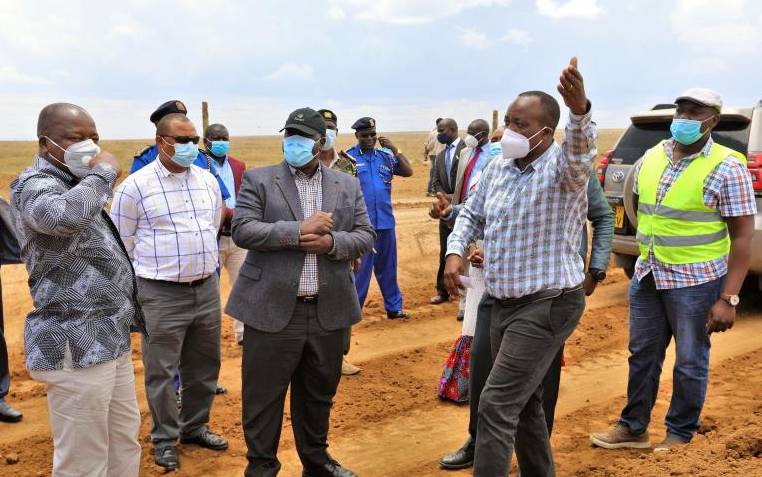×
The Standard e-Paper
Smart Minds Choose Us

Health Cabinet Secretary Mutahi Kagwe (left) explains something to his counterpart from the Interior and Coordination of National Government Fred Matiangi (third left) during a stop to inspect ongoing construction works along Kanyagia-Naro Moru road in Kieni West, Nyeri County, August 28, 2020. [Mose Sammy, Standard]
The Covid-19 pandemic has slowed down construction, causing uncertainty on the completion of multiple projects across the country.